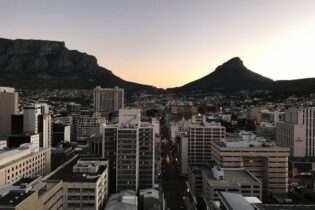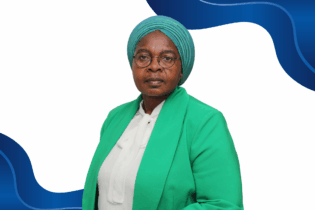The finals of Aqualibrium, the exciting SAICE-WRC Schools Water Schools Competition 2012 were held at the Sci-Bono Discovery Centre in Newtown, Johannesburg, on 27 July 2012. This worthwhile competition never fails to excite the teams, spectators and everyone involved! The Water Research Commission (WRC) is the major sponsor for 2012.
The 2012 champions with 160 penalty points conceded, were from the Domino Servite School in Pietermaritzburg – they were in the second place in 2011! The team members were Zama Nyende, Nntenga Memela and Bianca Coetzee. In the second place was the Steelcrest High School from Middelburg, Mpumalanga, with 180 penalty points. The team members were Hoteb Nkadimeng, Trinity Nkosi and Nokphiwa Mokoena. In the third spot was the Hoërskool Grens from East London (Buffalo City) with 315 penalty points achieved by Niel Verwoerd, Justin Vorster and Tommie Terblanche. They all shared the prize-money of just more than R17 000. Winners of the regional competitions come to Johannesburg from as far as Bloemfontein, Cape Town, Buffalo City (East London), Pietermaritzburg, Richards Bay, Nelson Mandela Bay (Port Elizabeth) and Middelburg in Mpumulanga, to battle the local winners for top honours. Learners are flown to Johannesburg and accommodated in a good hotel – an experience that these young people and some of the educators will never forget! For most this is a first experience of the ‘big city’. Without the generous sponsorship of the Water Research Commission (WRC), our naming-rights sponsor, as well as VelaVKE, FIBERPIPE, Marley PipeSystems, WISA (Water Institute of Southern Africa), SSI Engineers & Environmental Consultants, ILISO Consulting and Rand Water, this event would of course not be possible. It is only with the assistance of private sector companies that SAICE can continue this valuable project through which three students were inspired to study civil engineering: at WITS University there are two students, one in his third year, and one in his second year, and at UCT there is one student doing his second year. And they all come from the very disadvantaged Phomolong Secondary School in Tembisa. These young people from disadvantaged backgrounds are determined to go MAD, i.e. Make A Difference in their communities. We therefore have to go on with these kinds of projects. In order to continue making a difference to the scarce skills situation and the lives of many people! BackgroundBoth the South African Institution of Civil Engineering (SAICE) and Rand Water celebrated a hundred years of existence in 2003 and as part of their centenary celebrations they launched this joint competition for high school learners devised by Professor Kobus van Zyl (then from the University of Johannesburg) and his students. Since then the competition has been streamlined and has gained momentum in application, such as team building and demonstrations on ‘technovation’ days!
Water distribution networks
Water distribution systems are important to supply safe and clean drinking water to people. The teams are tasked to design a model water distribution network to distribute three litres of water equally between three points on the grid using two different diameter pipes and connection pieces. They are then judged on how well they execute the task – working on a penalty points system. They have a period of about an hour in which to design, construct and operate their network. This competition exposes learners to the practical application of processes that influence their daily lives, which is how water gets to their homes. They are made aware of the intricacies involved in the design of water distribution networks and the actual water delivery to households.
As part of the competition the water cycle is explained to the learners. Issues such as why we have to pay for water, why we need dams, the distribution of water through water boards to municipalities and then to users, as well as the conservation of our water resources are discussed.
The grid used for the water distribution network is on a background that depicts the entire water cycle. It intrigues learners, as well as educators, who find it a very helpful educational tool. The competition creates awareness regarding the issues surrounding water in South Africa. It spreads the message that water is a precious commodity that should be recycled, re-used, respected and conserved. We have to reduce the use of water as well. Through this competition SAICE and the Water Research Commission, the current major sponsor, the news that water should be used wisely is spreading. Infrastructure should be maintained and new infrastructure should be created to provide potable water to those without water. This competition strengthens government’s initiatives aimed at encouraging learners to take Mathematics and Science at school and to follow a career as a science or civil engineering professional. Only in this way can we assure that the quality of life of all South Africans will be better in the future! For enquiries and to become part of this very exciting competition, contact Marie Ashpole on 011 805 5947or email: marie@saice.org.za








